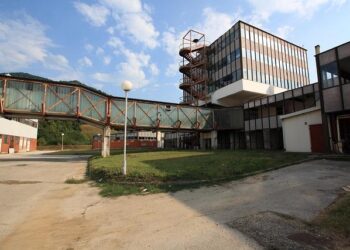Enhancing the Battle Against Human Trafficking: A Simulation Training Program in Bosnia and Herzegovina
In a notable move to combat the critical issue of human trafficking, Bosnia and Herzegovina recently hosted an innovative simulation training event, organized by the Organization for Security and Co-operation in Europe (OSCE). This initiative took place in February 2025, bringing together law enforcement officials, social service providers, and representatives from non-governmental organizations (NGOs) across various regions. The primary objective was to enhance their skills and preparedness to effectively respond to incidents of human trafficking. As global initiatives against modern slavery gain traction, this training underscores the urgent need for collaborative approaches and inventive solutions to tackle this serious crime. Positioned as a key player within the Balkans, Bosnia and Herzegovina is making vital strides toward improving regional cooperation against traffickers who exploit vulnerable populations.
Strengthening Law Enforcement Capabilities Through Simulation Training
The OSCE-led simulation training has considerably enhanced the operational effectiveness of law enforcement agencies in Bosnia and Herzegovina concerning human trafficking prevention. Over two days, participants from various police units engaged in realistic exercises that replicated actual trafficking scenarios. This hands-on approach allowed officers to understand the complexities involved in trafficking operations while developing effective strategies for victim identification and support. Key features of this training included:
- Engaging Role-Playing: Officers assumed different roles within simulated trafficking situations to cultivate empathy and insight.
- Collaborative Partnerships: The exercise highlighted the importance of collaboration with NGOs and social services for a comprehensive response.
- Expert Insights: Professionals provided valuable guidance on best practices for recognizing victims’ needs while delivering trauma-informed care.
The meaning of intelligence sharing among agencies was also underscored during this session as it is crucial for dismantling organized trafficking networks.Participants engaged in discussions aimed at fostering international cooperation since human trafficking often transcends borders. The OSCE meticulously crafted these simulations not only to equip law enforcement with essential skills but also to build a united front against such heinous acts. Key topics covered included:
| Training Focus Area | Description |
|---|---|
| Victim-Centric Approaches | A focus on understanding survivors’ rights and needs. |
| Laws Governing Trafficking | An overview of local regulations alongside international treaties related to human trafficking. |
| Evidentiary Techniques | Tactics for effectively collecting evidence while building cases against traffickers. |
Lessons from OSCE Training: Promoting Cooperation & Community Involvement
The attendees at the recent OSCE workshop gained invaluable insights into enhancing interagency collaboration aimed at more effectively combating human trafficking. Emphasizing cohesive networks among law enforcement bodies, social service providers, and NGOs is essential; integrating expertise across these sectors can significantly improve response strategies ensuring immediate assistance reaches victims when needed most. Key discussions revolved around:
- Cohesive Response Frameworks: Establishing joint operational plans between different agencies.
- Crisis Resource Sharing:Create platforms dedicated to swiftly exchanging vital facts among stakeholders.
- Sustained Educational Programs:A commitment towards ongoing education enabling personnel recognition of potential signs indicating instances of trafficking.
This initiative also emphasized how increasing community awareness serves as an essential strategy within anti-trafficking efforts.Engaging local communities fosters vigilance that can definitely help identify suspicious activities;. Leaders across various sectors were equipped with dialog techniques designed specifically for educating citizens about potential risks associated with human trafficking along with available support systems tailored towards victimsŌĆÖ recovery processes.
Noteworthy strategies discussed included:
| Awareness Initiatives | Anticipated Results |
|---|---|
| Community Engagement Workshops | Heightened local involvement & awareness |
| Public Information Campaigns | Improved comprehension regarding indicators signaling possible instances . |
| School Collaborations | Empowered youth acting as advocates against exploitation . |
















